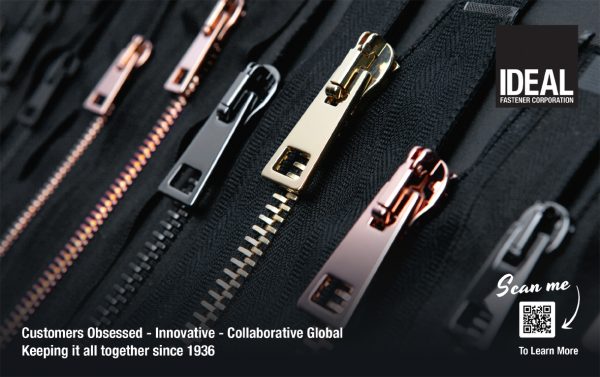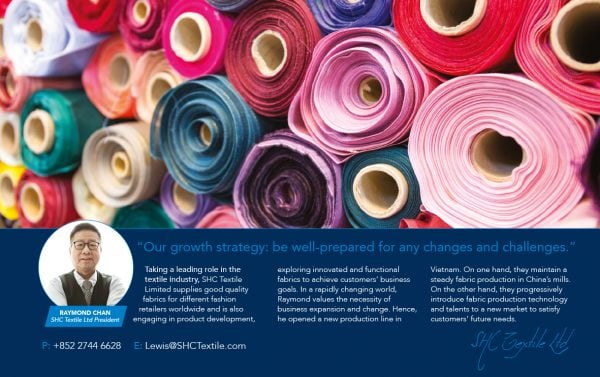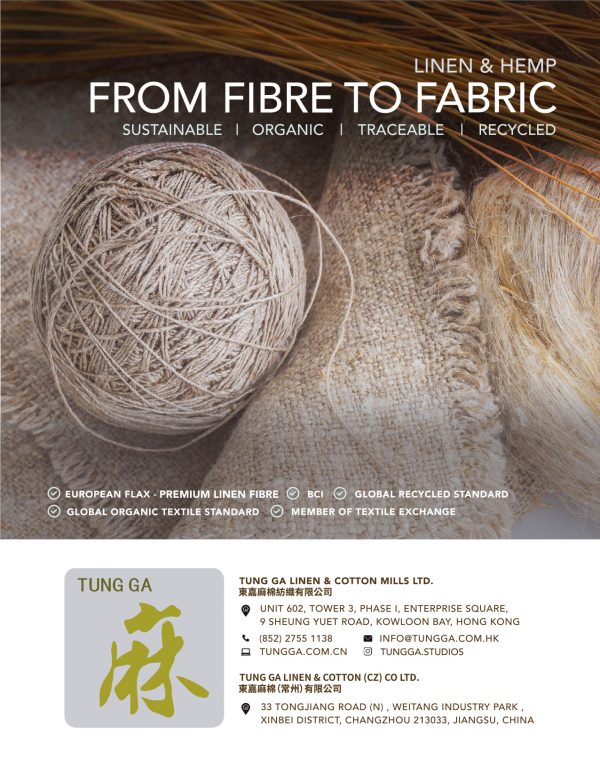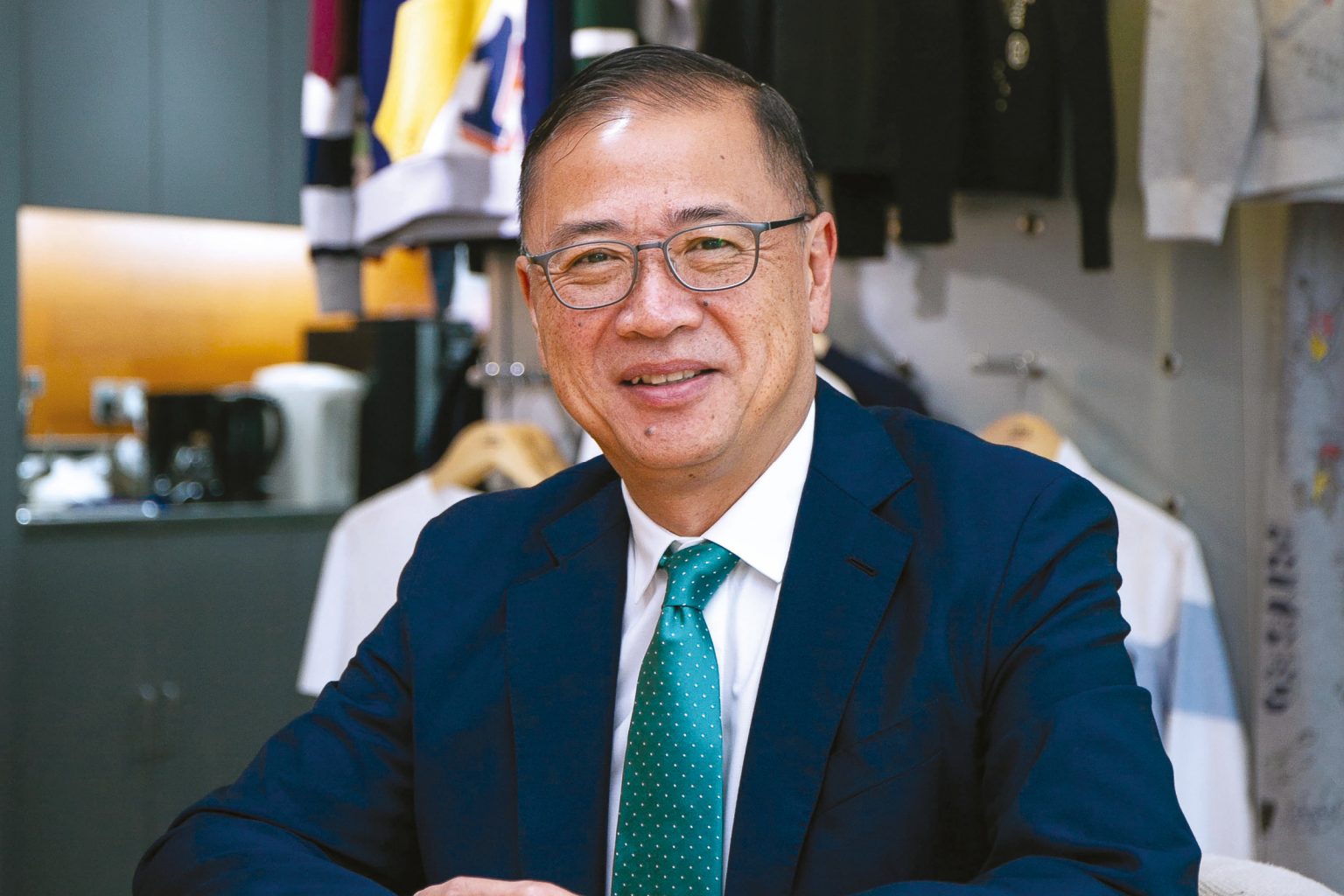There are few companies that can say they dress the world, but as a leading consumer goods supply chain group specialising in apparel and accessories, Luen Thai Holdings could come close. Luen Thai Holdings is a Hong Kong-based investment company involved in the design, manufacture and production, provision and distribution logistics of apparel and accessories.
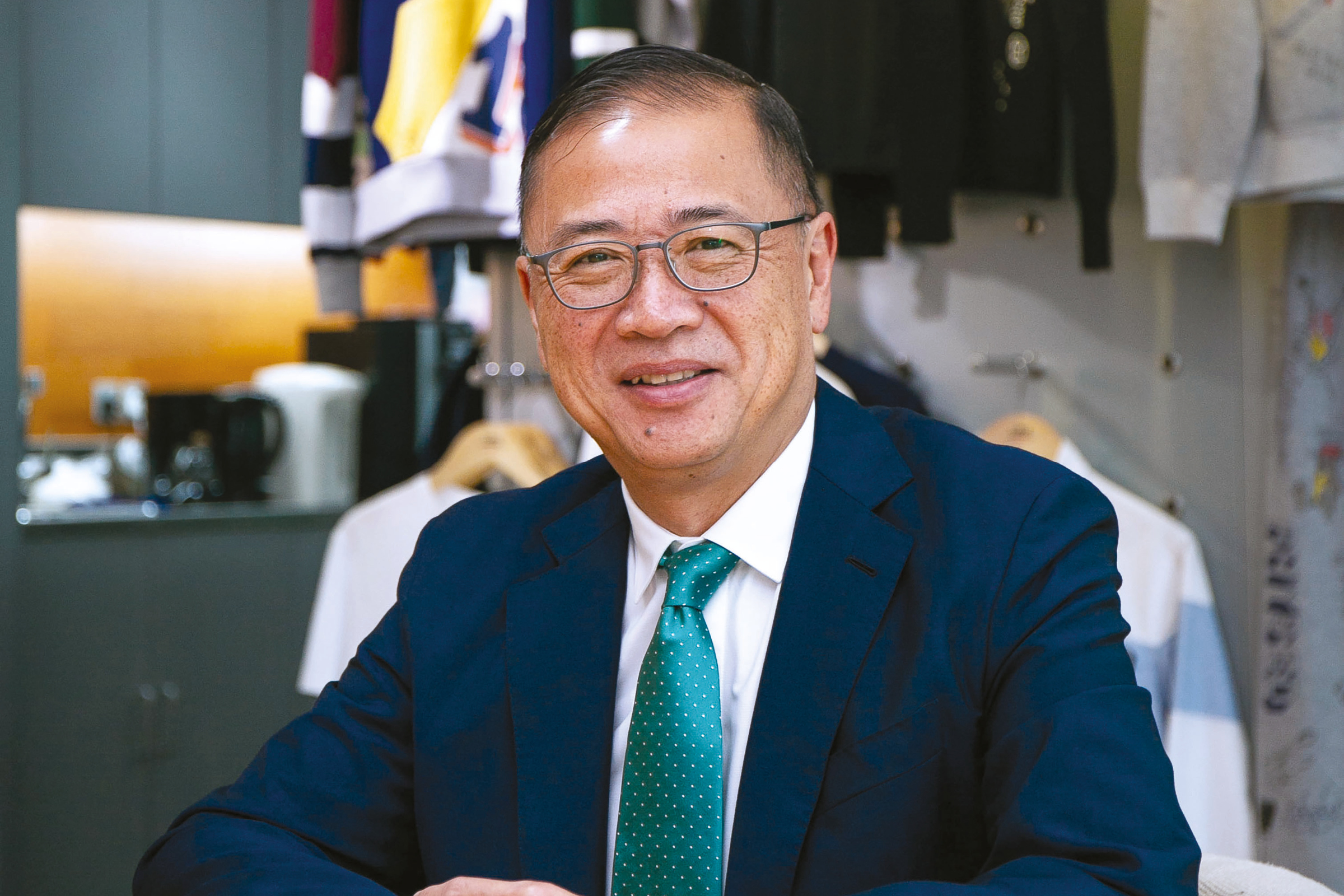
Its huge range of products includes clothing to suit most occasions, lifestyle apparel, and accessories, such as bags. It is a critical supplier to many apparel brands known around the world, with a reputation for quality products manufactured and supplied on budget and on time.
It has acquired numerous companies since 2002 to broaden its product range and increase its reach around the world. Raymond Tan has spent most of his professional career with the family company. He was appointed CEO in 2017 after spending about 12 years as Executive Director.
“Luen Thai Holdings was co-founded by my father, my brothers and myself. I was 23 and had just got out of college, so I have been in the business for about 36 years – for most of my life!” he says with a laugh.
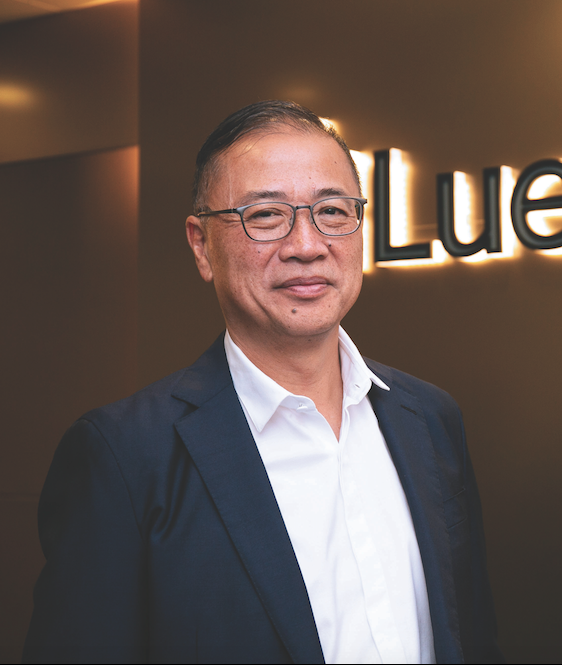
“We now operate and manufacture in nine countries – China, the Philippines, Cambodia, Vietnam, Indonesia, Myanmar, Thailand, India and Bangladesh. We have about 60,000 people working for the company.”
The complex, sprawling nature of the business requires tight control.
To that end, Raymond has been pursuing a path of digitalisation of the company’s operations for some time and is confident the transition is now nearing completion.
It’s a major turnaround for a company that has always relied heavily on human input for every facet of its operations, but for Raymond, it’s a critical step for the future security of the company as digital business practices take precedence.
“We started this journey about three-and-a-half years ago. We’re ahead of our competitors,” Raymond points out.
“This year we are trying to execute two paperless factories – one for apparel and one for accessories. That’s the first step, because having a paperless factory is basically just giving our people a clear indication that we are going to remove something that was so useful in the past. It’s really building a digital culture, not just removing paper. It’s a key benefit, using less paper, but more importantly, it’s a cultural transformation.”
Raymond’s technological vision goes beyond digitised processes by incorporating automation platforms that will migrate the company’s factories into smart factories, connecting internal processes, key suppliers and clients in one seamless chain of supply.
This will give the company a genuinely 21st-century technology base that will transform every facet of its management, production, sales and supply organisations.
“We spent a lot of time looking to the future and asked ourselves what we’ve learned and what our customers want in the future. We have to predict what they want. So for each of our major customers we form an alliance group of all the key fabric suppliers, and even the key manufacturers who might be competitors to each other, to give customers a total solution. We can then say, ‘We cover most of the countries you want to operate in, so we can provide manufacturing and the fabric capability by partnering with all these core manufacturers.’ We are going to link them up digitally,” he explains.
I don’t call myself CEO within the organisation. I always tell them that I’m their partner.
As part of this, Luen Thai Holdings is also in the process of realigning its manufacturing processes through a partnership with a Shanghai technology company that offers a revolutionary new way to print fabrics.
“We are partnering with them for a disruptive technology in the way fabric will be coloured. This is a very important part of our strategy. We’ll be offering that capability in most of the countries where we operate. A combination of our disruptive fabric technology and our digital supply chain can hopefully give a more holistic solution to our customers, especially after this coronavirus crisis,” Raymond says.
“Our technology partner developed a set of new machines that can print at a very high speed. The only way to commercialise it and make it practical for industry is to bring the cost down with a very high-speed machine that can print very sharp colour that passes all the quality tests required by customers, the government, and also by consumers. They’re able to do that, and on both sides of any fabric. That’s a fantastic step forward. It not only provides a better end product but it also streamlines our whole operation so that we become not just better at it but also hopefully more profitable at the same time,” he enthuses.
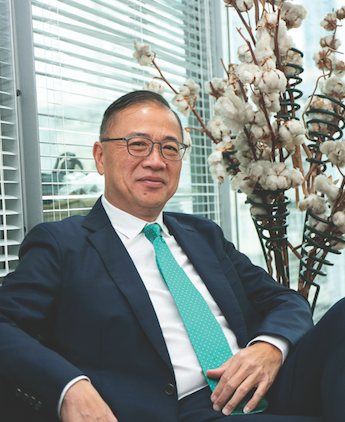
But Raymond has always stressed that transforming the company into a digital operation was never just about going digital or shifting from paper to computer.
It also required the company’s staff to transition to a new way of thinking and working, demanding as much concentration as the technology shift. “I think our HR strategy goes together with our digital strategy,” he says.
“You can’t have a digital strategy without an HR strategy – they have to be at the same level. This is the reason why last year I decided to launch our ‘7 XO [eXtraOrdinary] Habits’, which came from The 7 Habits of Highly Effective People by Stephen Covey, because the first section talks about paradigm shift. We need our people to look at the world differently. Fundamentally, we’re trying to change the culture of the organisation, setting the right foundation throughout the entire organisation. This is why our seven HR habits apply to every employee.”
Raymond’s view of his role is perhaps a little unusual for someone in his position. With so many staff in so many locations, he has a refreshingly open and self-deprecating personal vision of an impartial company looking forwards.
“I am a very transparent CEO. I don’t call myself CEO within the organisation. I always tell them I’m their partner; we just play different roles within the organisation. I would say all of them are on board.
You just have to open your eyes and ears and learn with your heart and mind.
“I want to make sure that we provide equality in terms of age, gender and race. More than 30% of our management board is female. This is important because when you have a group of senior leaders combining different groups, we influence each other, we learn from each other. The young give us more knowledge and push us towards the future. Then the more senior leaders share our experience. We try to create that balance.”
A more youthful outlook promotes contemporary matters of concern, such as the company’s role in a more sustainable future.
“We have to have a mindset that sustainability is important. We have to lead by example, with little things, like having no plastic bottles in all our factories. Because of our digital transformation we use less paper. More and more customers look at how we reduce our energy consumption and water consumption. Those are the current trends. But you don’t do it just because you want to please your customers. You want to do it because you believe in it,” says Raymond.
“I’m in a business that employs a lot of people, so when we make a proposal, we impact people’s lives. We are in a very polluted industry. If we can do something right, we impact the planet and the environment.”
Raymond’s balanced view is a direct result of his family, he declares. He takes lessons from many sources, some of which are quite surprising. “My father gave me a very good education, putting me to work while receiving a formal education at the same time,” he says.
“I don’t think I would be who I am without the way my father brought me and our second generation up. “I don’t have one mentor, but I believe that learning does not stop. I learn from street kids, I learn from dogs, I learn from great leaders. There is no boundary. You just have to open your eyes and ears and learn with your heart and mind.”
Proudly supported by:
